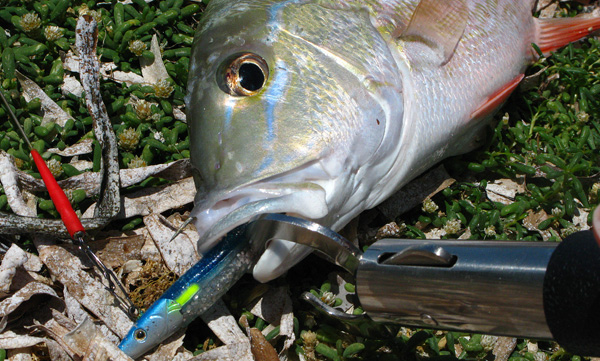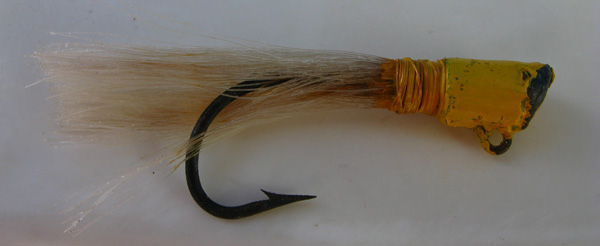In September Mark Olliff-Cooper and I went to Cuba for a ten-day break from the rat race; on the final morning of our holiday Mark discovered a tarpon-filled saltwater river just fifty yards from the hotel entrance and from the moment we landed back in Gatwick we began planning our return to Cuba to catch those tarpon… We have now been back!
We had discovered that the only way to buy fishing gear in Cuba is via the black market and most of the locals fish with either hand lines or spear guns. Some of the hotel staff we spoke to had some basic rods, which had been left behind by visiting Canadians but, for the most part, they made all of their own kit, including jigs and lures.
With this in mind our only option was to take all our own kit and anyone who has travelled with fishing rods knows that this is all about compromise. We took a travel rod with us to Cuba back in September – and it broke on the fifth cast – we didn’t want this to happen again, especially not when there were tarpon in sight. Equally, there is always the fear that you are going to lose your favourite rod forever.
We landed in Varadero and watched the conveyer belt go around for what felt like the one hundredth time…and my rod was just not on it. Mark was travelling with a Shimano Beastmaster rod that he had fitted into his main bag, our reels – Mark’s Quantum Cabo and my smaller Shimano Elf 4000 – were snuggling cocooned inside the cups of my bikinis, we had already filled them with Berkley Whiplash braid (50lb breaking strain – just in case), and our lures were in our wash bags, but where was my rod?
The Beastmaster is an awesome rod, sturdy, and exactly what we needed to land big fish but it is a little bit on the heavy side for me and I knew that I wouldn’t get more than a few casts from it before I began to struggle. The thought of sharing a rod and having to take it in turns was already beginning to produce an air of tension between us because, as a rule, Mark does ‘not do’ sharing and fishing was already getting a bit competitive between us and what we wanted was a race to get a tarpon. Added to this was the fact that my rod had been kindly lent to us by John Olliff-Cooper, as had the case which had been around the world with him when John was somewhat of an international fishing adventurer.
The thought of his reaction when we told him that we had lost the rod before we’d even got to the hotel was motivation in itself regardless of seven months’ planning and day dreaming about the tarpon we wanted to catch with it. Neither of us spoke Spanish and the airport staff in Cuba are the least friendly I have ever come across – it is no Orlando.
We were about to give up hope when we caught sight of a familiar face, Le Duan. We had become friendly with this fishing-mad barman on our last trip to Cuba and Mark had spent hours talking to him and he recognised us straight away. No longer making Mojitos, he had been promoted to a sort of ‘meet and greet’ for the hotel and was searching the airport for us whilst the other twenty couples going to our hotel waited angrily in the steaming hot bus. Being fishing mad himself, he understood our despair and was quickly running around the airport talking to anyone and everyone who might know the whereabouts of the rod and its case – he found it within minutes and we bashfully took our seats at the back of the coach.
On our last trip to Cuba we made extensive enquiries as to the best time of year to go fishing and it became apparent that the locals hadn’t been completely truthful in their response. We couldn’t quite believe that it was a coincidence that the ‘best’ season for fishing coincided with peak season at the hotel. In truth this didn’t really matter, if there was one fish we were going to catch it!
By day two we had our first catch – but it wasn’t a tarpon, it was a snapper but it gave a pretty good fight after it hit a Savage Sandeel. If I was going to have only one lure it would be a Savage Sandeel as it seems to be able to get everything to bite. The locals were amazed as they favoured using pieces of shrimp as bait and made it clear they thought that we were amateurs to use anything else. We started giving them huge shrimps from the hotel restaurant in return for information on the best places to fish, they were delighted and we saw several of them using the shrimps but couldn’t help but wonder whether when hooking the bait onto the line they were really gambling their supper in hope of a bigger meal…
The Cubans working in the hotel offered to cook the snapper we caught, however, Mark quickly quashed this idea – he was eating lobster, steak and nothing else! We gave the snapper to one of the Cubans whom I had befriended – Montenegro – although I couldn’t speak a word of Spanish and he couldn’t speak English we discovered that we could both speak a bit of Italian so were soon friends. We gave him the snapper and he gave us fresh coconuts that had washed up on the shore, he cut them open with his machete – the taste is something I’ll never forget.

Catching the snapper was fun but they weren’t really what I was interested in, I wanted a tarpon. I had heard a lot about tarpon; mainly that they were very difficult to catch and Mark wanted to catch one badly this, of course, made me want to catch one before he did.
Mark stood on the edge of the river tirelessly casting in the hope of catching one, he had a few bites but didn’t seem able to hook one and it wasn’t until we went back to the river with Le Duan, our local guide, that it looked as though we were really in with a chance of one. Fishing for the tarpon felt like the adventure fishing I’d seen on Sky TV and the type of fishing that I imagined John O-C had done in the Amazon whilst Mark was still a child; this was the type of fishing that I really wanted to do.
It was hot and muggy, there were hundreds of mosquitoes and the river smelled damp and peaty. Le Duan gave me the use of his rod, which can only have been a £20 child’s rod – probably something left behind by one of the Canadians, and with it a jig that he had made, he told me, from metal from a car engine and horse hair and, to be frank, it didn’t look like the kind of rod or bait that would catch the kind of fish I was aiming for.

I was told to use the jig almost like a fly, keeping it jumping along the surface of the water. The tarpon moved quickly so Le Duan said to cast from left to right until I covered the breadth of the river, then turn and go back in the direction I’d come from.
I had been told to feel for a tug-tug-tug but when it finally happened the tarpon felt like a steam train – hitting the jig with such force that I didn’t have time to think, I just pulled my rod up and back with all of my strength. I was quite scared that I was about to be dragged into the river and Le Duan had to hold on to me around my waist so that I was able to play the tarpon without it pulling me in. Finally I got it in, it was honestly one of the biggest adrenaline rushes I have ever had. I have sailed competitively in very windy conditions and galloped around the countryside on less than well trained horses but this was a far deeper rush, something almost primitive and by the time I held the tarpon in my hands my hold body was shaking and I could not take the smile off my face. I can’t really put into words how happy it made me feel to catch such an awesome fish; all I can say is that if I was into fishing before, I am well and truly addicted to it now. I want that rush again, I almost need it!
Since getting back to the UK I have been researching where I can go next in search of big fish and the location that I most want to go to is Boca Grande. It’s not the sort of holiday that can be funded by a very average 9 to 5 job but one day I’m going to get there – I’m hooked on tarpon now and I want more of them. In the meantime I’m going to have to content myself with bass fishing and here is hoping that my luck continues!
If you want to check out Leonie’s blog, which she delightfully describes as being about: “Fishing and cooking fish (and occasionally the odd cake!)” then you can find it HERE










